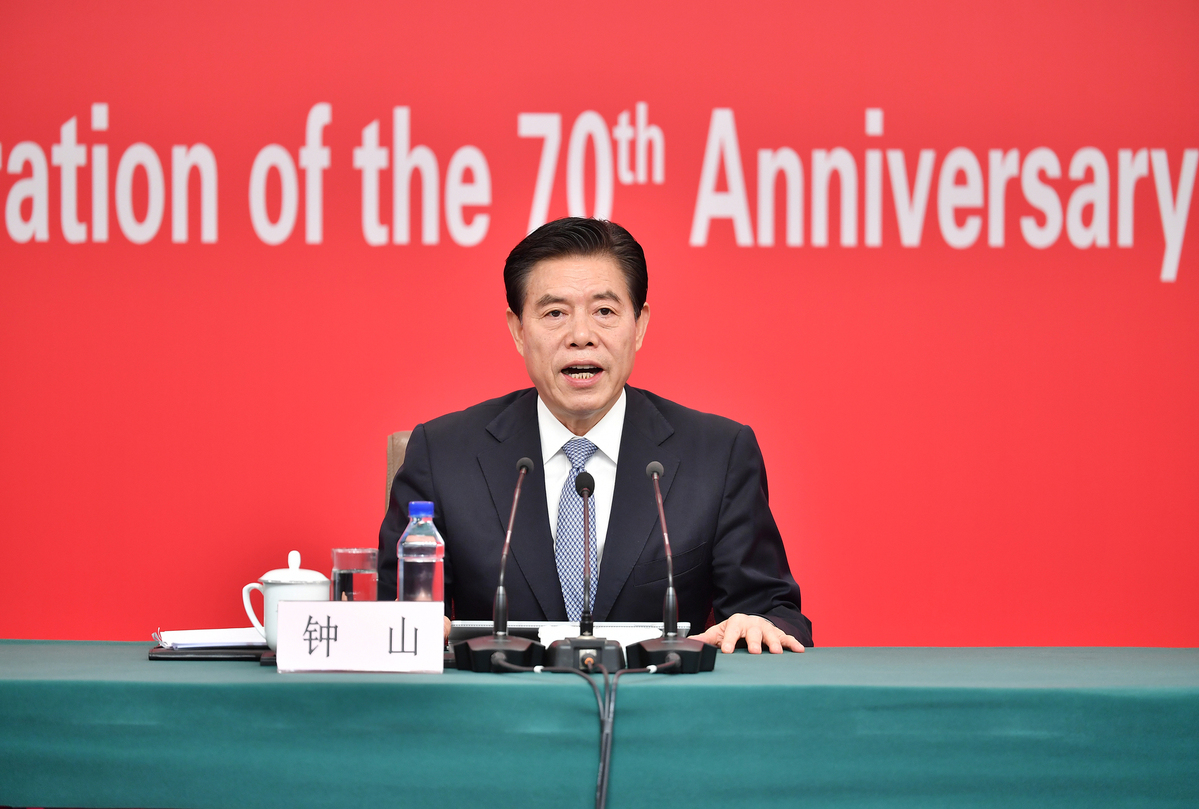Commerce ministry taking steps to boost high-quality trade


China will come up with a number of measures to further bolster high-quality trade, amid its enhanced efforts in deepening reform and opening-up, Commerce Minister Zhong Shan said.
Speaking at a recent meeting, Zhong said the Ministry of Commerce will center on supply-side structural reform, accelerate the shift from opening-up based on flow of goods and factors of production to opening-up based on institutions, and deepen reform in the foreign trade sector.
The ministry will well implement the upcoming guideline on promoting the high-quality development of trade and introduce specific measures, Zhong said.
Zhong said the ministry will speed up the construction of pilot free trade zones and free trade ports. It will also conduct research on further relaxing market access in FTZs, and opening up the service sector, he said.
Since 2013, 18 free trade pilot zones have appeared across the nation. The country also expanded the China (Shanghai) Pilot Free Trade Zone to the Lingang New Area.
On Sept 9, Xi Jinping, general secretary of the Central Committee of the Communist Party of China (CPC), presided over the 10th meeting of the central committee for deepening overall reform.
During the meeting, Xi, also the Chinese president, chairman of the Central Military Commission and head of the central committee for deepening overall reform, said efforts should be made to strengthen synergy, coordination and efficiency in advancing reform.
Official data showed China's foreign trade maintained stable growth in the first three quarters of 2019. Total trade volume reached 22.91 trillion yuan ($3.24 trillion), expanding 2.8 percent year-on-year, according to the General Administration of Customs.
China's trade with the European Union and the Association of Southeast Asian Nations reached 3.57 trillion and 3.14 trillion yuan respectively, registering an increase of 8.6 percent and 11.5 percent respectively, the GAC data showed.
In the first three quarters this year, trade with the United States dropped 10.3 percent year-on-year to 2.75 trillion yuan, according to the GAC.
The commerce ministry will actively respond to Sino-US trade frictions, Zhong said at the meeting, without elaborating.
"The global trade growth has mounting uncertainties, and the international economic and trade rules are facing reconstruction," Zhong said.
Protectionism and unilateralism have been spreading, and the multilateral trading system represented by the World Trade Organization has been challenged, Zhong said.
China needs to continuously foster competitive advantages, enhance its ability to participate in making international rules, and improve the business environment, Zhong added.
Zhao Ping, director of the department of international trade research at CCPIT Academy, said it is worth noting that China has a strong capacity in addressing pressure in terms of foreign trade.
In spite of the uncertainties in the world economy, global demand for Chinese products and services is still increasing, Zhao said.
The proportion of high value-added exports has grown rapidly, which is conducive to optimize foreign trade structure, she said.




































